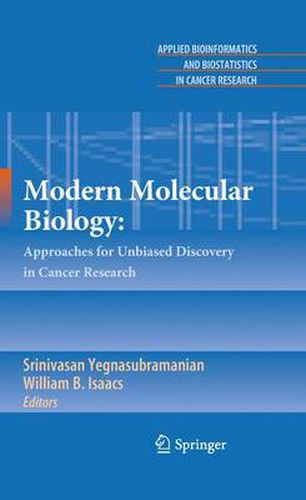Readings Newsletter
Become a Readings Member to make your shopping experience even easier.
Sign in or sign up for free!
You’re not far away from qualifying for FREE standard shipping within Australia
You’ve qualified for FREE standard shipping within Australia
The cart is loading…






This title is printed to order. This book may have been self-published. If so, we cannot guarantee the quality of the content. In the main most books will have gone through the editing process however some may not. We therefore suggest that you be aware of this before ordering this book. If in doubt check either the author or publisher’s details as we are unable to accept any returns unless they are faulty. Please contact us if you have any questions.
Molecular biology has rapidly advanced since the discovery of the basic flow of information in life, from DNA to RNA to proteins. While there are several important and interesting exceptions to this general flow of information, the importance of these biological macromolecules in dictating the phenotypic nature of living creatures in health and disease is paramount. In the last one and a half decades, and particularly after the completion of the Human Genome Project, there has been an explosion of technologies that allow the broad characterization of these macromolecules in physiology, and the perturbations to these macromolecules that occur in diseases such as cancer. In this volume, we will explore the modern approaches used to characterize these macromolecules in an unbiased, systematic way. Such technologies are rapidly advancing our knowledge of the coordinated and complicated changes that occur during carcinogenesis, and are providing vital information that, when correctly interpreted by biostatistical/bioinformatics analyses, can be exploited for the prevention, diagnosis, and treatment of human cancers.
The purpose of this volume is to provide an overview of modern molecular biological approaches to unbiased discovery in cancer research. Advances in molecular biology allowing unbiased analysis of changes in cancer initiation and progression will be overviewed. These include the strategies employed in modern genomics, gene expression analysis, and proteomics.
$9.00 standard shipping within Australia
FREE standard shipping within Australia for orders over $100.00
Express & International shipping calculated at checkout
This title is printed to order. This book may have been self-published. If so, we cannot guarantee the quality of the content. In the main most books will have gone through the editing process however some may not. We therefore suggest that you be aware of this before ordering this book. If in doubt check either the author or publisher’s details as we are unable to accept any returns unless they are faulty. Please contact us if you have any questions.
Molecular biology has rapidly advanced since the discovery of the basic flow of information in life, from DNA to RNA to proteins. While there are several important and interesting exceptions to this general flow of information, the importance of these biological macromolecules in dictating the phenotypic nature of living creatures in health and disease is paramount. In the last one and a half decades, and particularly after the completion of the Human Genome Project, there has been an explosion of technologies that allow the broad characterization of these macromolecules in physiology, and the perturbations to these macromolecules that occur in diseases such as cancer. In this volume, we will explore the modern approaches used to characterize these macromolecules in an unbiased, systematic way. Such technologies are rapidly advancing our knowledge of the coordinated and complicated changes that occur during carcinogenesis, and are providing vital information that, when correctly interpreted by biostatistical/bioinformatics analyses, can be exploited for the prevention, diagnosis, and treatment of human cancers.
The purpose of this volume is to provide an overview of modern molecular biological approaches to unbiased discovery in cancer research. Advances in molecular biology allowing unbiased analysis of changes in cancer initiation and progression will be overviewed. These include the strategies employed in modern genomics, gene expression analysis, and proteomics.